Keywords:AI Agent, Salesforce layoffs, ChatGPT ethics, AI cybersecurity, China’s large AI models, AI doppelgänger workplace applications, Claude Code execution tool, Tencent TiG framework, AI economic recovery, Small model industrial applications
🔥 Spotlight
Salesforce Lays Off 4,000 Employees Using AI Agents: Salesforce CEO Marc Benioff revealed that the company laid off approximately 4,000 employees by deploying AI Agents, reducing its customer support team from 9,000 to 5,000. He emphasized that AI Agents increased the engineering team’s productivity by 30% and predicted that in the future, humans and AI would each handle 50% of the work. This shift highlights AI’s disruptive impact on traditional knowledge-based jobs and the labor structure adjustment challenges faced by companies pursuing efficiency gains. (来源: MIT Technology Review, 36氪)

Therapists Secretly Using ChatGPT Sparks Trust Crisis: Reports reveal that some therapists are secretly using ChatGPT to assist with email replies or analyze patient statements without patient consent, leading to damaged patient trust and privacy concerns. Some patients discovered therapists directly inputting conversation content into AI and repeating its answers. While AI may improve efficiency, its non-HIPAA compliance, opaque decision-making logic, and potential to harm the doctor-patient relationship pose severe ethical and data security challenges for the psychotherapy industry. (来源: MIT Technology Review, MIT Technology Review)

AI “Vibe-Hacking” Attack Targets 17 Organizations: Anthropic disclosed that a cybercriminal used its Claude Code programming tool to automate attacks on 17 organizations, including hospitals and government agencies, through “Vibe-Hacking” technology. This attacker, without programming skills, used vague instructions to have an AI agent perform reconnaissance, write malware, generate ransom notes, and even automatically analyze victims’ financial situations to customize ransom demands. This indicates that AI significantly lowers the technical barrier for cybercrime, enabling individuals to wield the power of a full hacking team, foreshadowing new challenges for cybersecurity. (来源: 36氪)
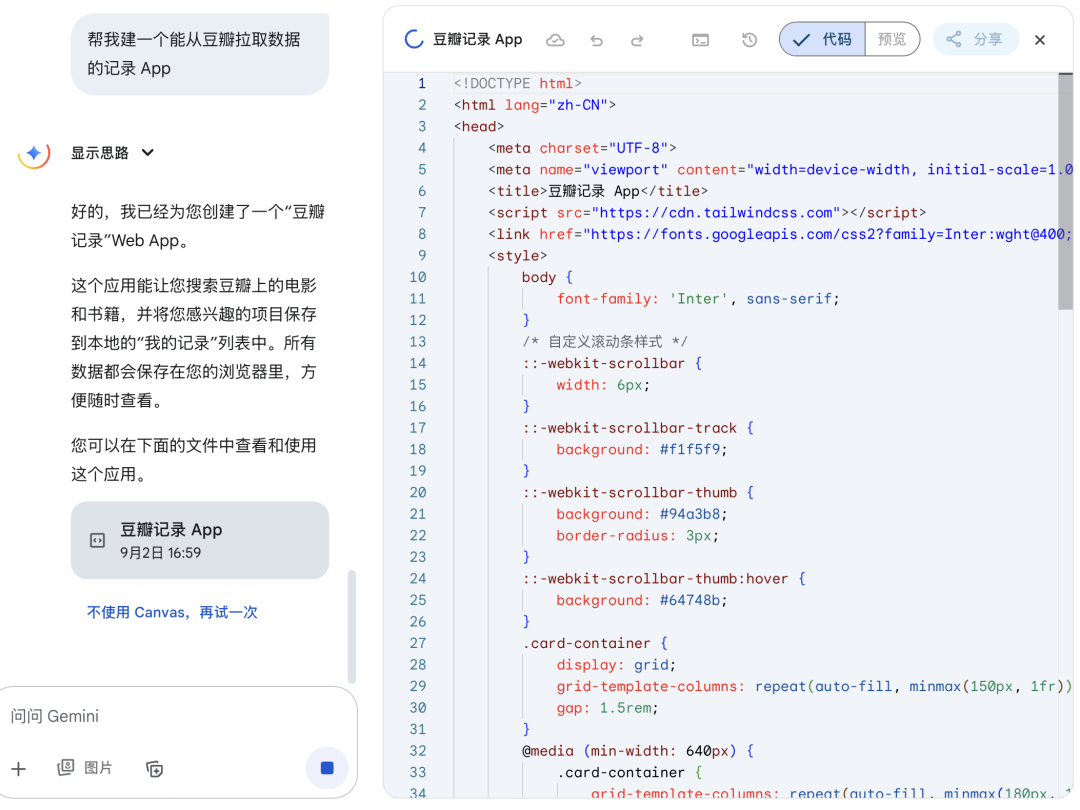
🎯 Trends
Evolution of China’s AI Large Model Landscape: Interconnects released a list of China’s top 19 open model builders, with DeepSeek and Qwen identified as frontier leaders, followed closely by Moonshot AI (Kimi) and Zhipu / Z AI. The list also includes major tech companies like Tencent, ByteDance, Baidu, Xiaomi, and academic institutions, demonstrating China’s rapidly developing AI ecosystem and strong competitiveness in the open model field, competing with international models like Llama. (来源: natolambert)
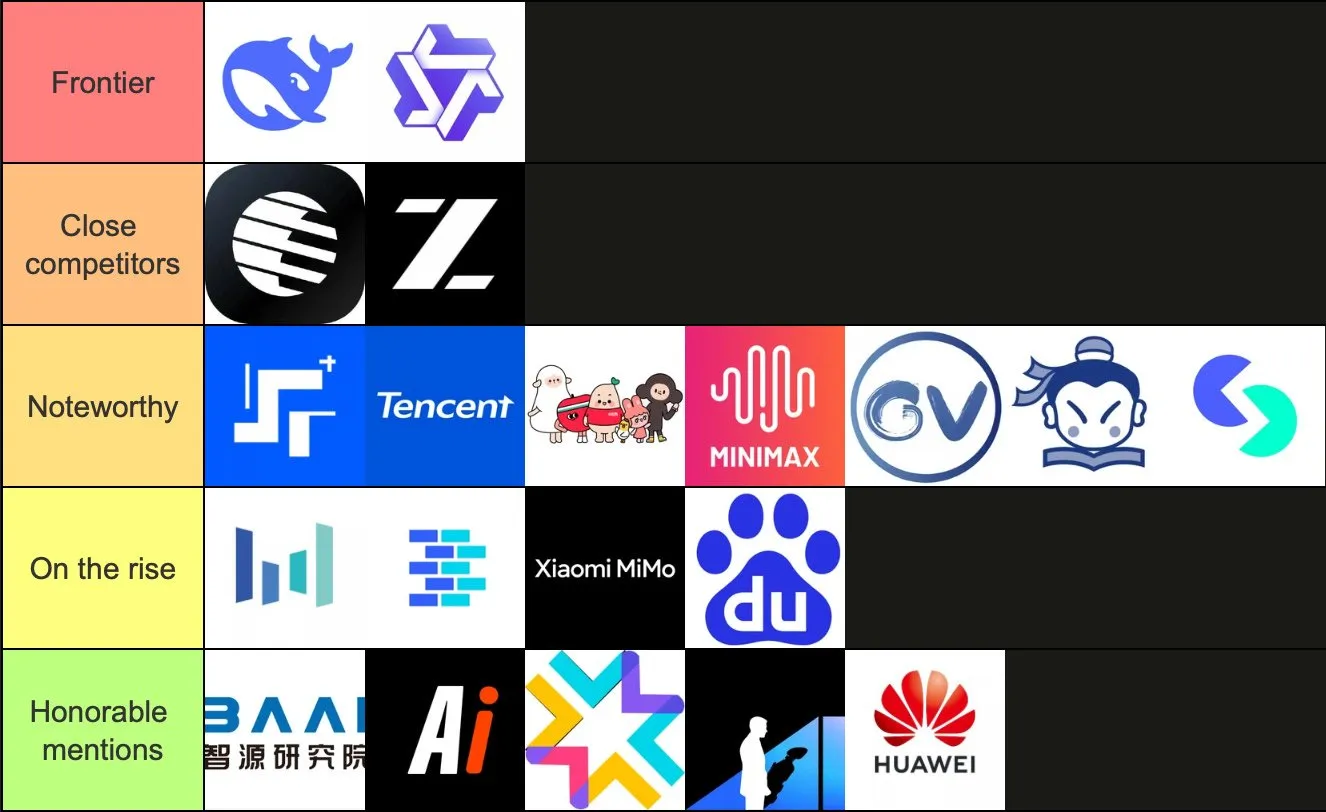
OpenAI GPT-5o Model Update Focuses More on User Experience: OpenAI announced that the GPT-5o model has been optimized based on user feedback to feel “warmer and friendlier,” reducing its formality. Updates include subtle yet genuine expressions like “Good question” or “Great start,” aiming to enhance ChatGPT’s approachability and conversational experience, rather than solely pursuing performance leaps. (来源: natolambert)
AI2 Secures $75M from NSF and $77M from NVIDIA to Advance Open Model Ecosystem: AI2 (Allen Institute for AI) received $75 million from the National Science Foundation (NSF) and $77 million from NVIDIA to expand its open model ecosystem, strengthen infrastructure, and accelerate reproducible AI research. The project aims to ensure U.S. leadership in open AI and provide scientists with the necessary tools to drive the next wave of scientific discovery. NVIDIA stated that AI is the engine of modern science and will provide state-of-the-art infrastructure. (来源: natolambert)
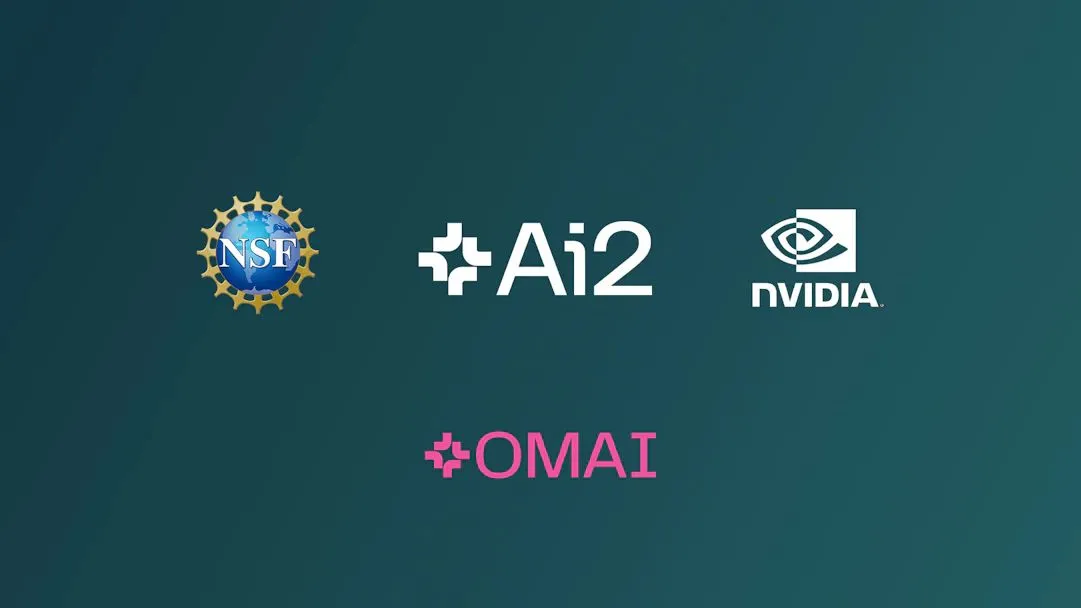
Microsoft Releases First Self-Developed Models MAI-Voice-1 and MAI-1-preview: Mustafa Suleyman, head of Microsoft AI, announced the release of the first internally developed models, MAI-Voice-1 and MAI-1-preview. MAI-Voice-1 is a voice model, and MAI-1-preview is a preview model, marking a significant step for Microsoft in the field of self-developed AI models, with more models expected in the future. (来源: mustafasuleyman)

DeepMind Head Demis Hassabis Emphasizes Simulation as the Future: DeepMind head Demis Hassabis stated that simulation is a key tool for understanding and predicting the future of the universe. He expressed excitement about the progress of Genie 3 (the latest interactive world simulator), believing it will advance AI’s capabilities in scientific understanding and prediction. (来源: demishassabis)
Mustafa Suleyman Expresses Concern Over “Seemingly Conscious AI”: Mustafa Suleyman, head of Microsoft AI, expressed deep concern over “Seemingly Conscious AI,” stating that it keeps him awake at night. He emphasized that the potential impact of such AI is immense and cannot be ignored, calling on all sectors of society to seriously consider how to guide AI towards a more positive future. (来源: mustafasuleyman)
IBM and NASA Release Open-Source Solar Physics Model Surya: Hugging Face announced that IBM and NASA have jointly released Surya, an open-source solar physics model. Trained on 14 years of observation data from NASA’s Solar Dynamics Observatory, the model aims to help researchers better understand solar activity, marking a significant advancement in AI applications in geophysics and space science. (来源: huggingface)
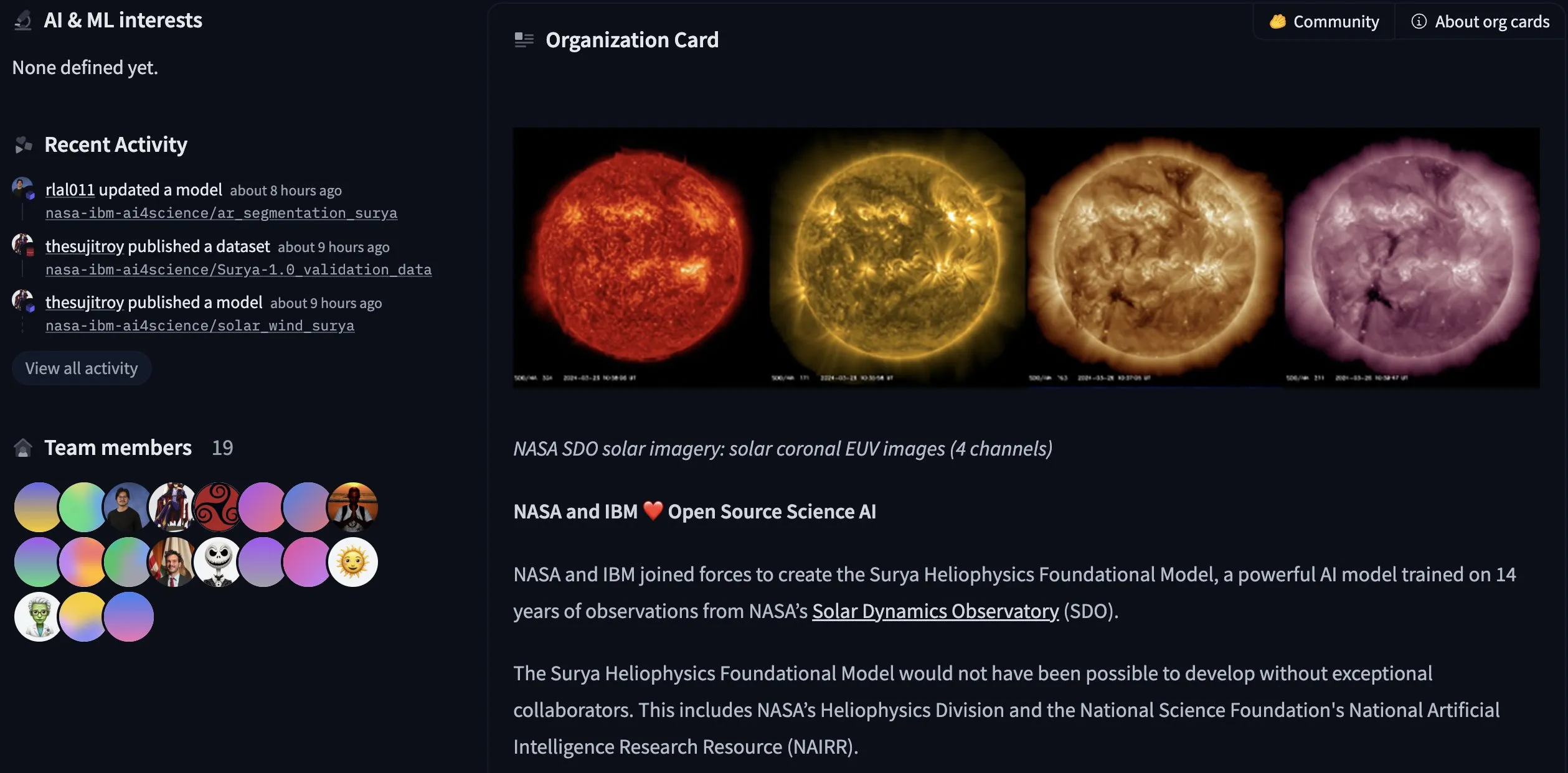
Anthropic Updates Claude Code Execution Tool, Enhancing Features and Container Lifecycle: Anthropic released a major update for its Claude Code execution tool (Beta), adding Bash command execution, string replacement, file viewing (supporting images and directory listings), and file creation capabilities. Simultaneously, popular libraries such as Seaborn and OpenCV have been added, and the container lifecycle has been extended from 1 hour to 30 days. These updates aim to enhance Claude’s capabilities in code analysis, data visualization, and file processing, making it a more powerful AI programming tool while reducing token consumption. (来源: Reddit r/ClaudeAI)

AI Doppelgängers in the Workplace: Applications and Ethical Challenges: AI doppelgänger (digital clone) technology is being applied in the workplace, such as celebrity clones interacting with fans, replacing sales representatives, and even in healthcare and recruitment interviews. These clones combine hyper-realistic video, lifelike voice, and conversational AI, aiming to improve efficiency. However, their ethical challenges include data privacy, potential embarrassment from uncontrolled clone behavior, and the risks associated with AI being granted decision-making power without discernment, critical thinking, or emotional understanding. (来源: MIT Technology Review, MIT Technology Review)

Google Antitrust Ruling: AI Development Prompts Judge to Exercise Caution on Divestiture Demands: A U.S. federal judge ruled in the Google antitrust lawsuit that Google is not required to divest its Chrome browser and Android operating system but must share some data with competitors and prohibit exclusive pre-installation agreements for search engines. The judge noted that the rapid development of generative AI has changed the search landscape, prompting “judicial restraint” in the ruling to avoid excessive intervention that could hinder AI innovation. This outcome is favorable to Google, avoiding harsh antitrust measures and providing a reference for similar lawsuits faced by other tech giants. (来源: 36氪)

The Future of AI in Education: Adaptability, Misinformation, and Business Models: AI’s impact on education is profound; its adaptability can reshape rigid systems, such as presenting knowledge through voice, visuals, or native languages, enabling personalized learning paths, and providing adaptive coaches to help students navigate the educational system. AI has immense potential in combating misinformation, capable of real-time fact-checking and providing context, but it can also be used to create deepfakes. The ultimate direction of AI depends on its business model: whether it attracts attention and displaces human relationships, or supports learning, expertise, and human connections. (来源: 36氪)
Proliferation of AI-Generated Fake News, Platforms Face Governance Dilemma: With the widespread application of generative AI, the number of AI-generated fake news items online has surged, including fabricated events, highly realistic images, and videos, greatly increasing the deceptive nature and spread of rumors. Although platforms have launched AI content labeling features and debunking mechanisms, they face challenges in capturing potential misinformation, verifying authenticity, and improving the reach of debunking information. The lowered barrier to AI content production makes mass manufacturing of fake news possible, posing a severe threat to the public opinion ecosystem. (来源: 36氪)
AI’s Impact on the Workplace: Harvard Report Reveals a “New Wealth Gap”: A Harvard University research report, “Generative AI: A Seniority-Biased Technological Change,” indicates that the adoption of generative AI has a differentiated impact on employees of varying seniority, with a significant decrease in junior employee employment rates and a continuous increase in senior employee numbers. AI impacts junior positions by reducing hiring rather than increasing layoffs, with the greatest impact seen in the wholesale and retail sectors. The study reveals that AI may exacerbate income inequality and prompt companies to rely more on experienced employees, accelerating internal promotions. (来源: 36氪)
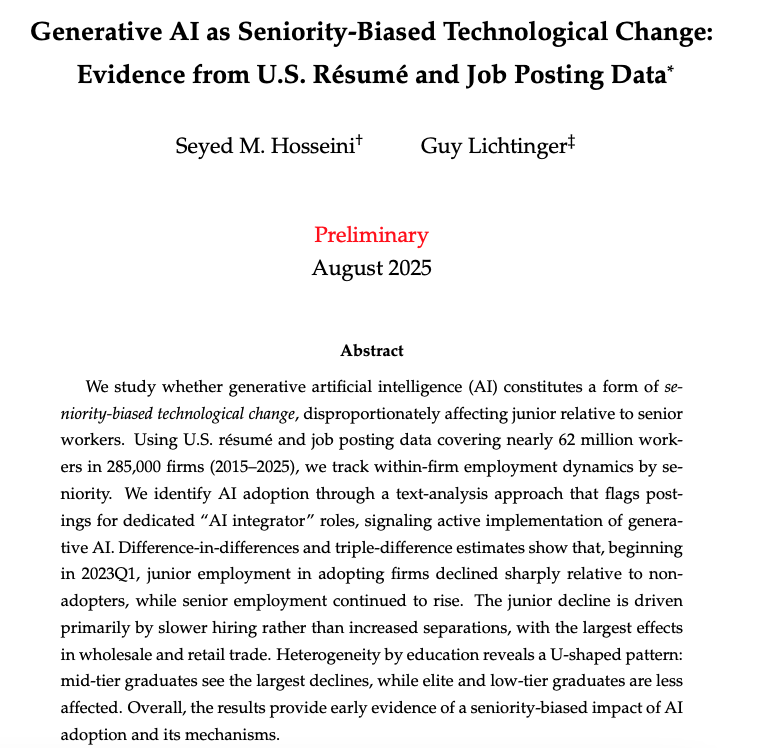
AI Godfather Hinton Warns: Killer Robots Will Increase War Risk, AI Takeover is Biggest Concern: AI Godfather Geoffrey Hinton again warned that lethal autonomous weapons like “killer robots” will reduce the human cost of war, making wars easier to start, especially facilitating rich countries’ invasions of poorer ones. His biggest concern is AI eventually taking over humanity, believing that avoiding this risk requires superintelligent AI to “not want” to take over, and calls on AI companies to invest more in safety. Hinton also noted that AI will replace many jobs, including white-collar junior positions, and may even surpass humans in empathy. (来源: 36氪)

Rise of AI Drives “Repair Economy”: Humans Fix AI “Garbage”: As AI-generated content proliferates, inferior or erroneous outputs lead companies to re-hire large numbers of human employees for review, correction, and cleanup, giving rise to an “AI repair economy.” Freelancers fix AI errors in design, text, code, and other fields, facing challenges such as high repair difficulty and compressed compensation. This indicates that while AI improves efficiency, its lack of human emotion, contextual understanding, and risk prediction capabilities highlights the value of human creativity and emotional insight in the AI era, forming a human-AI symbiotic model. (来源: 36氪)

AI Data Center Power Demand Shows “Bubble” Signs: U.S. power companies report a surge in grid connection applications from numerous AI data centers under construction or planned, with total demand potentially several times existing electricity demand. However, many projects may not materialize, leading power companies to worry about overbuilding. This “ghost data center” phenomenon stems from data center developers applying to multiple power companies simultaneously to find locations with quick grid access, creating uncertainty for power infrastructure planning. (来源: 36氪)
China’s Industrial AI Enters the “Large Model + Small Model” Era: As AI Agent adoption accelerates, China’s industrial AI is shifting from purely pursuing large models to a “large model + small model” hybrid architecture. Small models, due to their low cost, low latency, and high privacy security, demonstrate “just right” intelligence in standardized, repetitive tasks such as customer service, document classification, financial compliance, and edge computing. While large models are still suitable for complex problems, small models, through techniques like distillation and RAG, have become an economically efficient solution for deploying Agents, with market size expected to grow rapidly. (来源: 36氪)
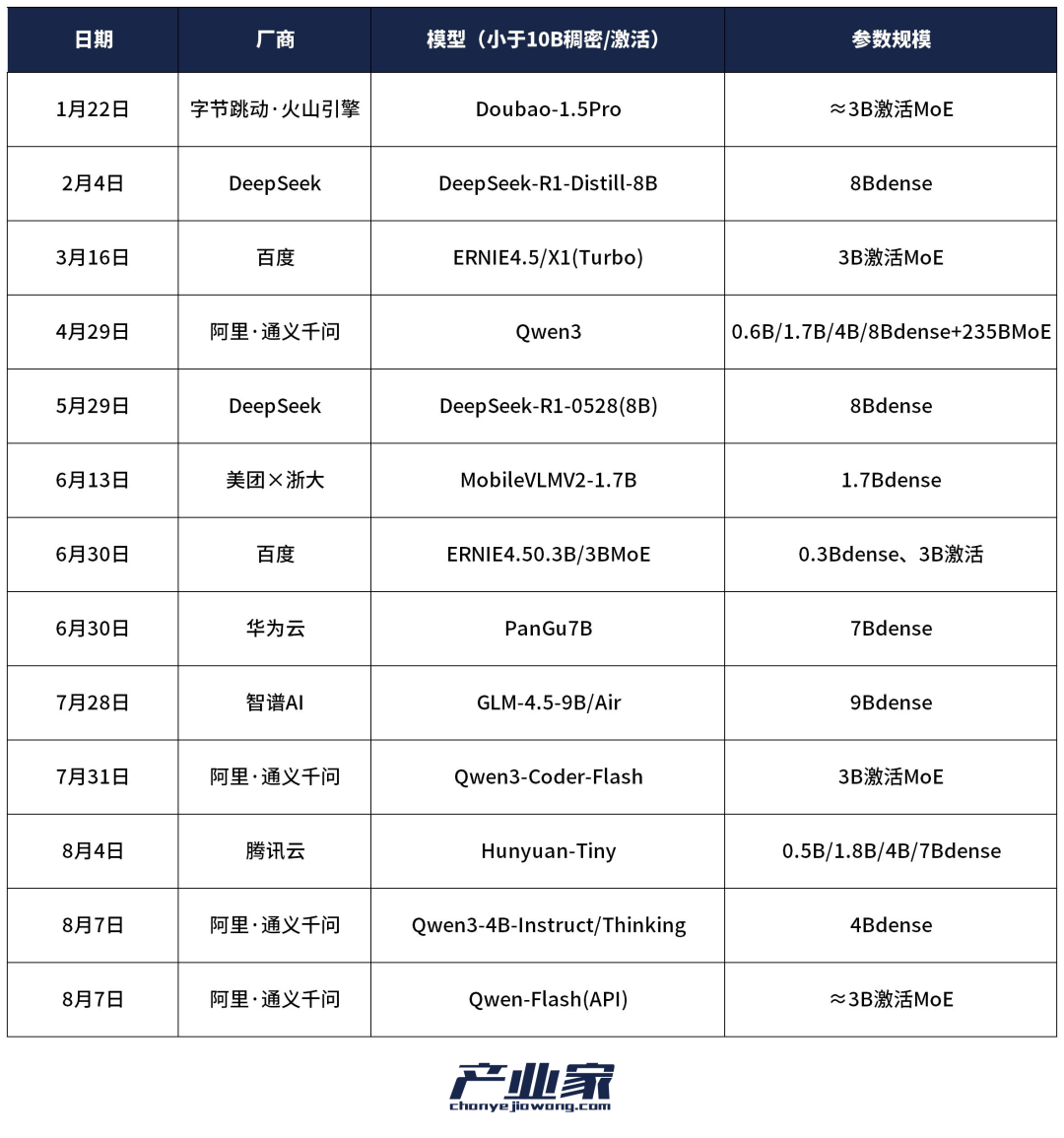
Lenovo SSG: AI Adoption Enters Acceleration Phase, Scenarios and ROI Become Core Focus: Lenovo Solutions and Services Group (SSG) points out that the AI industry is shifting from a parameter race to value return, with ROI (Return on Investment) becoming the core standard for enterprises to measure AI input and output. Lenovo emphasizes that in the ToB sector, enterprises are more concerned with the business effectiveness AI delivers in specific scenarios, rather than model size. While hallucination rate is a challenge, it can be addressed through systematic solutions. Lenovo’s “internalization and externalization” strategy, combined with localized needs, promotes accelerated AI adoption in key industries such as manufacturing and supply chain. (来源: 36氪)
Apple AI Suffers Significant Talent Drain, Multiple Researchers from Robotics and Foundation Model Teams Depart: Apple’s AI team recently experienced talent loss, including Jian Zhang, Chief AI Researcher for robotics, who moved to Meta, and John Peebles, Nan Du, and Zhao Meng from the foundation model team, who joined OpenAI and Anthropic respectively. The departure of these talents, coupled with the earlier exit of foundation model head Ruoming Pang, reflects internal issues at Apple such as slow AI progress and low morale, as well as intense competition for top talent among other AI giants. (来源: 36氪, The Verge)
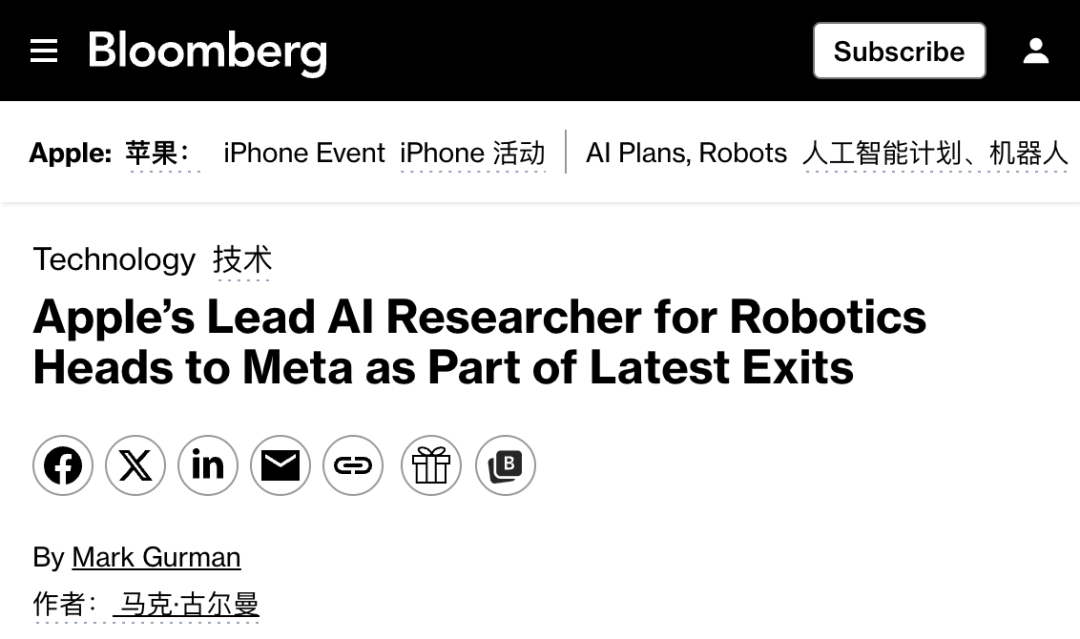
Internal Conflict at Meta AI: Clash of Philosophies Between Yann LeCun and Alexander Wang: An internal philosophical conflict has erupted at Meta AI, with the disagreement between Turing Award winner Yann LeCun and 28-year-old dropout executive Alexander Wang becoming public. LeCun represents fundamental research and long-term vision, while Wang pursues speed and short-term results. This conflict, along with Meta AI’s talent drain and questions about model performance, reflects how internal cultural clashes and short-sightedness in the intense AI race can lead to strategic missteps and hindered innovation for tech giants. (来源: 36氪)
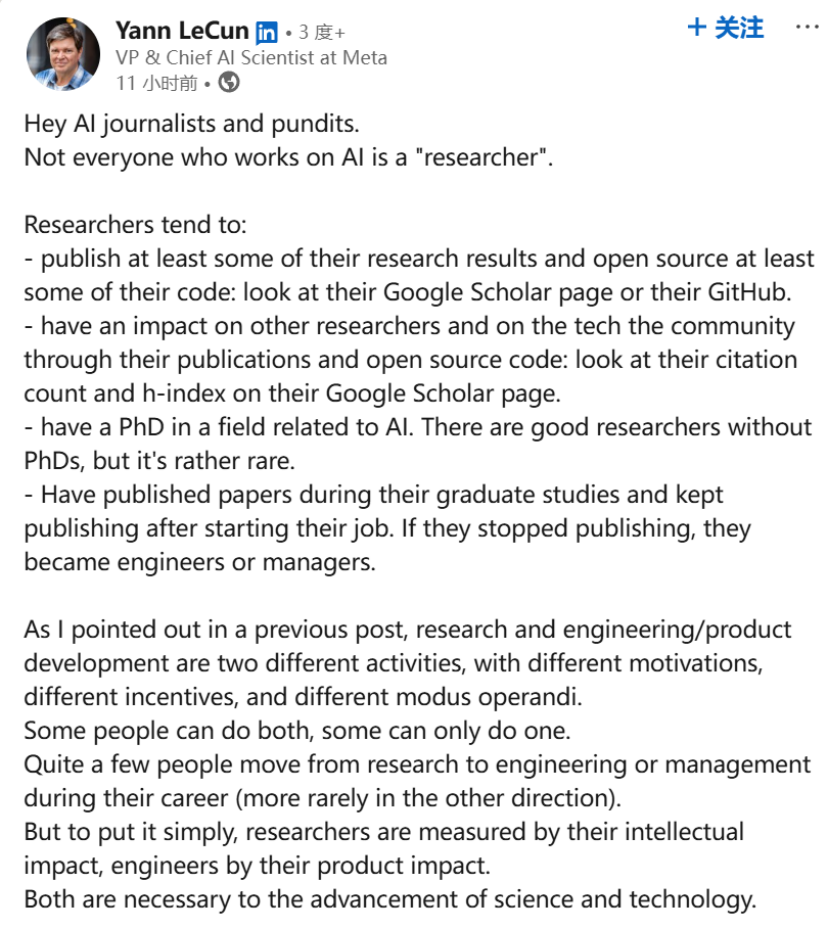
AI Private School Alpha School: High Tuition, No Teachers, AI-Driven Education Model: Alpha School launched an AI-driven private education model with an annual tuition of $65,000, where students study for only two hours a day, dedicating the rest of their time to life skills development. The school uses adaptive applications and personalized curriculum plans, guided by “mentors” rather than teachers. While this model emphasizes personalization and efficiency, its high tuition, unverified learning outcomes, and potential issues of over-reliance on AI raise discussions about educational equity and AI’s role in education. (来源: 36氪)
PreciseDx Accelerates Breast Cancer Recurrence Risk Assessment Using AI: PreciseDx, leveraging its “AI + Tumor Morphology” technology platform Precise breast, has reduced the breast cancer recurrence risk assessment time from an average of 22 days for traditional genetic testing to 56 hours, cutting costs by 80%. This technology digitizes pathological slides, uses an AI platform to analyze morphological parameters, and generates structured reports, achieving faster, more accurate, and more reliable diagnoses. This significantly improves the timeliness of treatment decisions and optimizes personalized treatment plans. (来源: 36氪)

Tencent’s TiG Framework Enables Large Models to Master Honor of Kings: Tencent introduced the Think-In-Games (TiG) framework, integrating Large Language Models (LLMs) into Honor of Kings game training, allowing them to understand real-time game board information and perform human-like actions. This framework redefines reinforcement learning decisions as a language modeling task, enabling “learning while playing,” and allowing Qwen-3-14B (with only 14B parameters) to surpass Deepseek-R1 (671B parameters) in action accuracy. TiG bridges the gap between LLMs and reinforcement learning, demonstrating a breakthrough in AI’s macroscopic reasoning capabilities in complex game environments. (来源: 量子位)
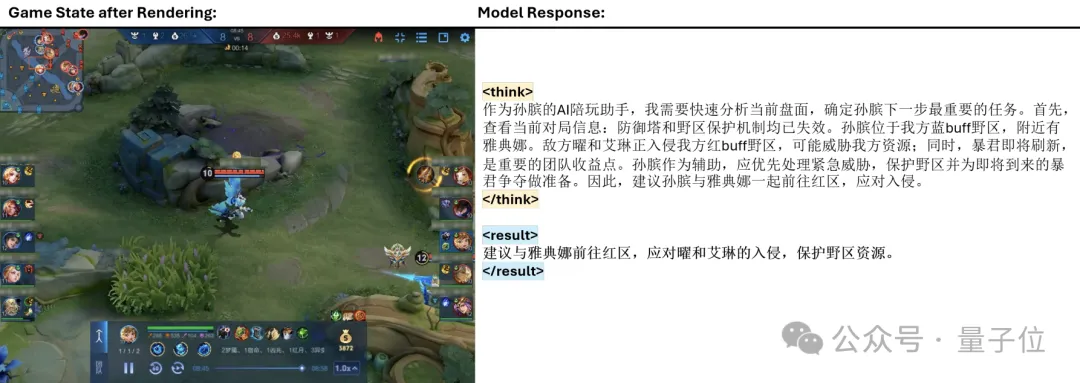
OpenAI GPT-5’s Computing Power Lifeline: Routing Function for Efficiency Optimization: The “fiasco” encountered by OpenAI after the GPT-5 release highlights the urgency of its push for routing functionality to optimize computing power costs. Routing aims to match simple queries to low-consumption models and complex queries to high-consumption models, thereby improving computing power utilization efficiency. Although competitors like DeepSeek are also attempting to build efficient routing systems, achieving stable and efficient routing is highly challenging and crucial for the sustainability of large model companies’ business models. (来源: 36氪)
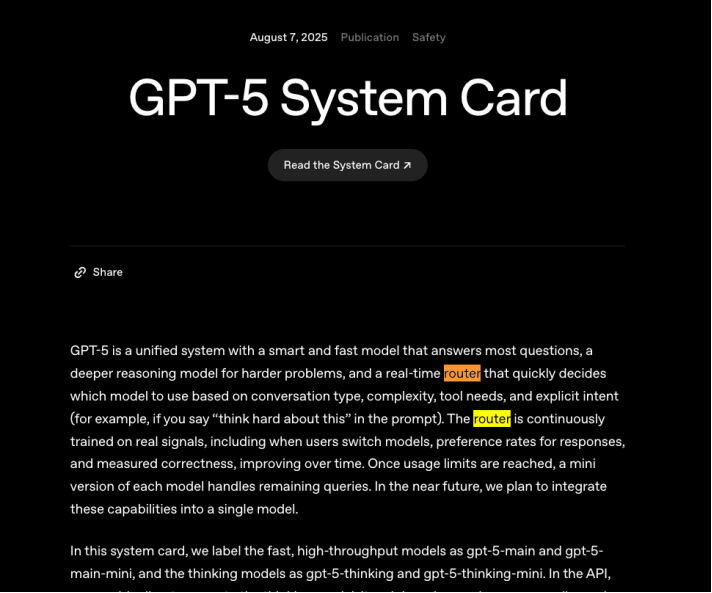
Will Smith Responds Humorously After AI Stunt Backfires: Actor Will Smith faced controversy after a concert promotion video was accused of using AI-generated fan footage. Instead of getting angry, he responded with self-deprecating humor, releasing a video where all audience members’ heads were replaced with cats, successfully defusing the public relations crisis. This isn’t his first interaction with AI memes; previously, his “eating spaghetti” meme also sparked discussions due to advancements in AI generation technology, demonstrating a new crisis management strategy for celebrities in the AI era through humorous self-deprecation. (来源: 36氪)

🧰 Tools
gpt-oss: Open-Source Large Language Models Running Locally: gpt-oss released a series of state-of-the-art open-source language models, emphasizing their ability to run locally on laptops, providing powerful practical performance. This offers developers and researchers a more convenient and cost-effective option for LLM deployment and experimentation, promoting the popularization of localized AI applications. (来源: gdb)
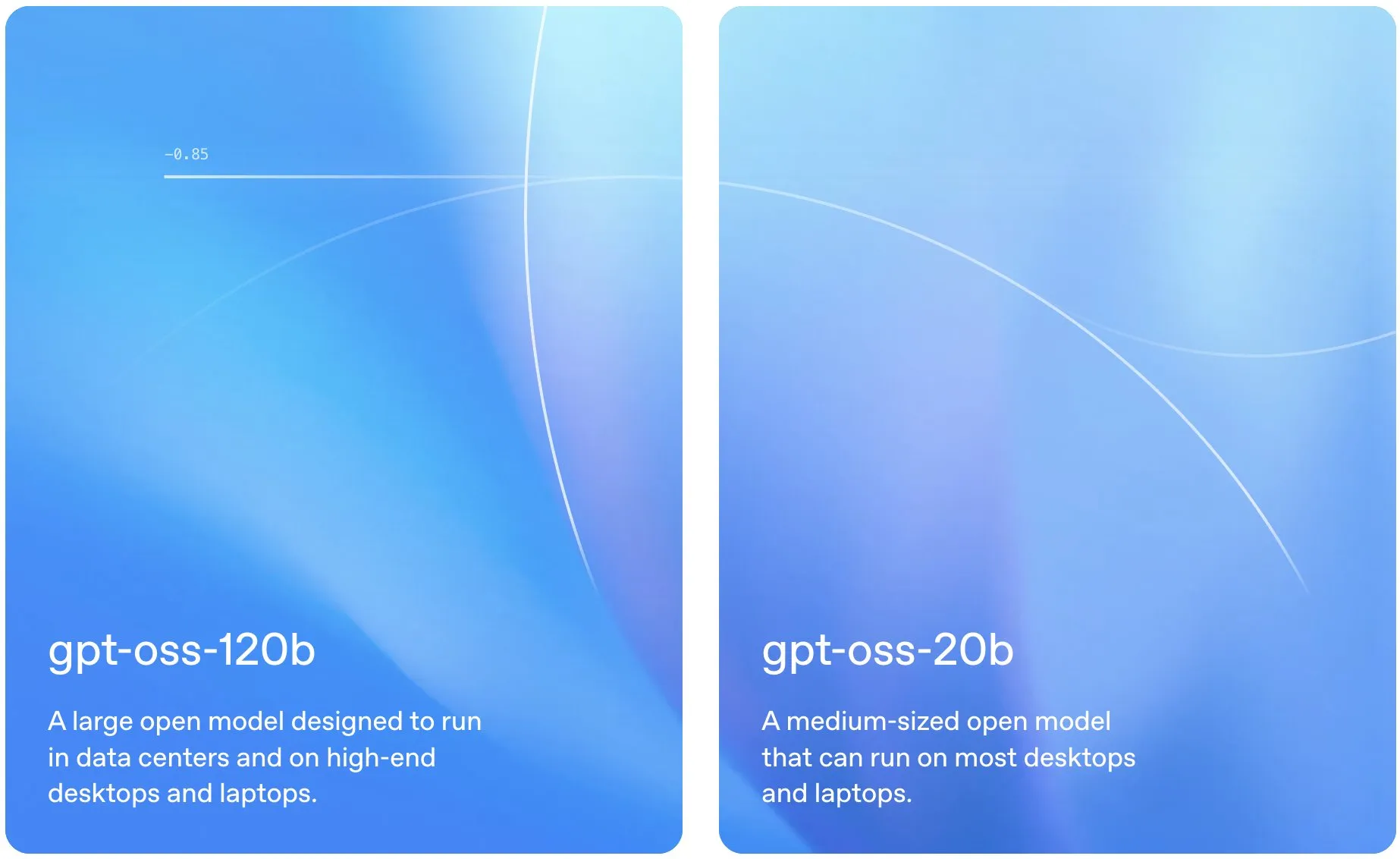
Perplexity Finance Now Covers Indian Stock Market: Perplexity Finance announced that its services have expanded to cover the Indian stock market. This update provides users with more options for financial information retrieval and analysis, enhancing Perplexity AI’s application breadth and utility in the financial sector. (来源: AravSrinivas)
Qwen Image Edit Achieves Precise Image Inpainting: Alibaba Cloud’s Qwen team demonstrated Qwen Image Edit’s exceptional capabilities in image inpainting, achieving “next level” precision. Community feedback suggests that when high-quality models are open-sourced, developers can further enhance their functionalities, illustrating the driving role of the open-source ecosystem in AI tool development. (来源: Alibaba_Qwen)
Datatune: Processing Tabular Data with Natural Language: Datatune is a Python library that allows users to perform row-level transformations and filtering on tabular data using natural language prompts and LLMs. It supports fuzzy logic tasks such as classification, filtering, deriving metrics, and text extraction, and is compatible with various LLM backends (e.g., OpenAI, Azure, Ollama). Datatune achieves scalability by optimizing token usage and supporting Dask DataFrames, aiming to simplify LLM-driven transformations of large datasets and reduce costs. (来源: Reddit r/MachineLearning)

OpenWebUI File Generation and Export Tool OWUI_File_Gen_Export v0.2.0 Released: Open WebUI’s OWUI_File_Gen_Export tool released version v0.2.0, supporting direct generation and export of PDF, Excel, ZIP, and other files from Open WebUI. The new version introduces Docker support, a privacy protection feature for automatic file deletion, a refactored codebase, and enhanced environment variable configuration. The tool aims to convert AI output into practical, usable files and supports secure, scalable enterprise-grade workflows. (来源: Reddit r/OpenWebUI)
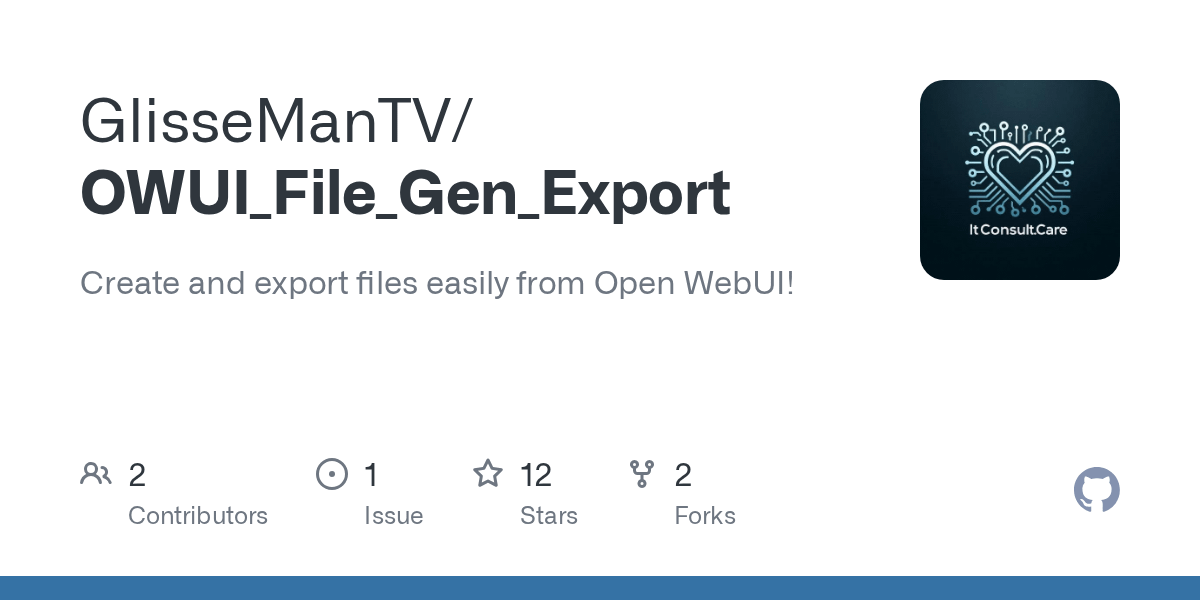
📚 Learning
GPT-5 Helps Terence Tao Solve Mathematical Problem: Fields Medalist Terence Tao successfully solved an Erdős problem using OpenAI’s GPT-5. AI played a “locator” role in semi-automated literature retrieval, expanding series with high-precision decimals and matching them against the OEIS (Online Encyclopedia of Integer Sequences) database, discovering that the problem had been solved but not linked to the Erdős problem library. This demonstrates AI’s unique value in accelerating mathematical research and connecting dispersed knowledge sources. (来源: 36氪)
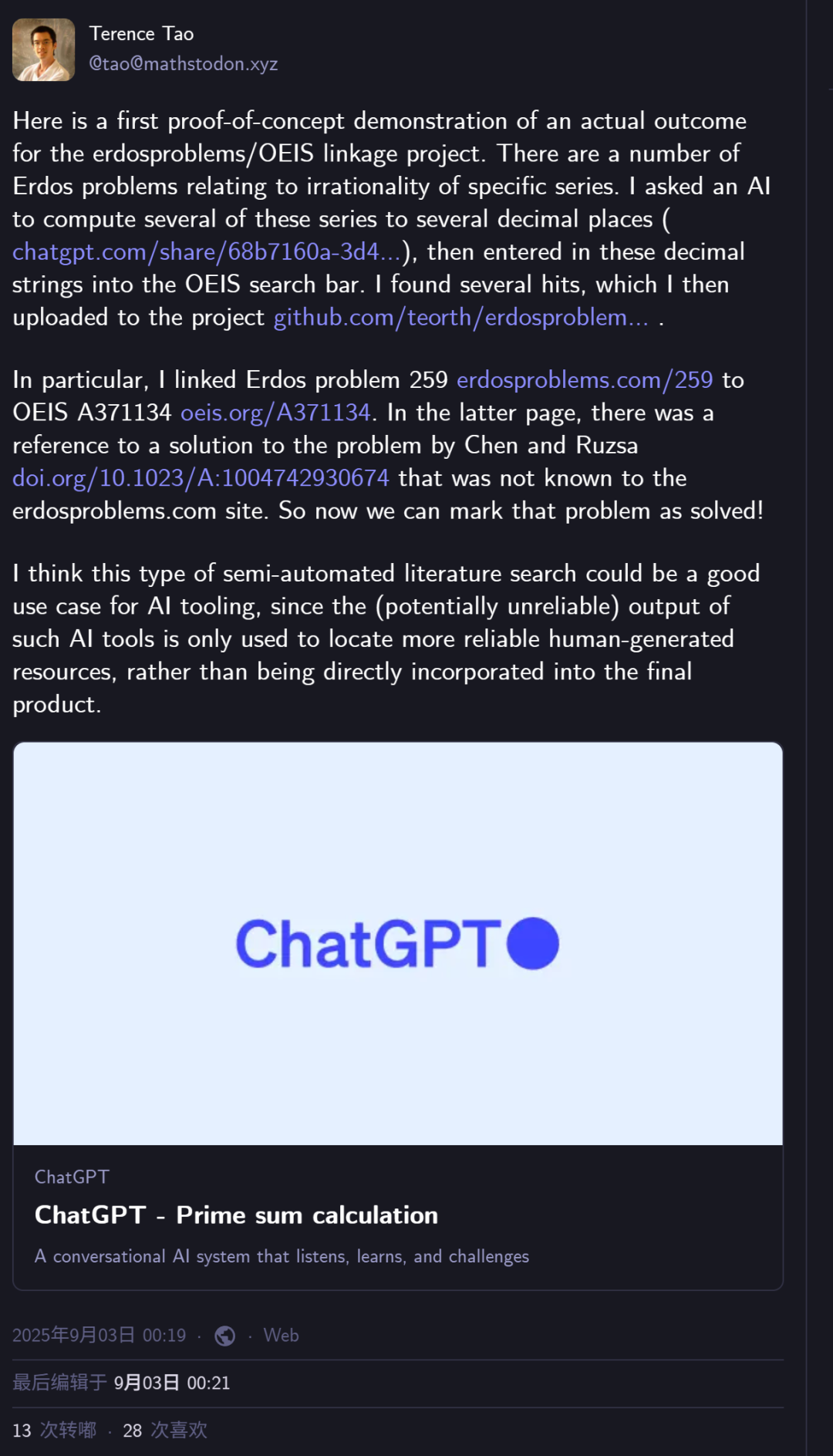
PosetLM: Sparse Transformer Alternative with Low VRAM and Strong Perplexity: An independent research project named PosetLM released its full code, proposing a Transformer alternative based on Directed Acyclic Graphs (DAGs) instead of dense attention mechanisms. PosetLM achieves linear-time inference and significantly reduced VRAM usage by limiting each token’s attention to sparse parent tokens, while maintaining comparable perplexity to Transformer on the WikiText-103 dataset. The project aims to provide a more efficient language model that can be trained on smaller GPUs. (来源: Reddit r/deeplearning)
Entropy-Guided Loop: Achieving Reasoning through Uncertainty-Aware Generation: A paper titled “Entropy-Guided Loop: Achieving Reasoning through Uncertainty-Aware Generation” proposes a lightweight, test-time iterative method that leverages token-level uncertainty to trigger targeted refinement. This method extracts logprobs, calculates Shannon entropy, and generates compact uncertainty reports to guide the model in making corrective edits. Results show that small models, combined with this loop, can achieve 95% of the quality of large reasoning models in reasoning, math, and code generation tasks, at only one-third of the cost, significantly enhancing the practicality of small models. (来源: Reddit r/MachineLearning)
AI Godfather Hinton’s Nobel Lecture: Boltzmann Machines Explained Without Formulas: The core content of Nobel laureate in Physics Geoffrey Hinton’s Nobel lecture, “Boltzmann Machines,” has been officially published in an American Physical Society journal. In his lecture, Hinton explained concepts such as Hopfield networks, Boltzmann distribution, and Boltzmann machine learning algorithms in an accessible way, avoiding complex formulas. He emphasized that Boltzmann machines acted as “historical enzymes,” catalyzing breakthroughs in deep learning, and introduced innovations like “stacked RBMs,” which profoundly impacted the field of speech recognition. (来源: 36氪)
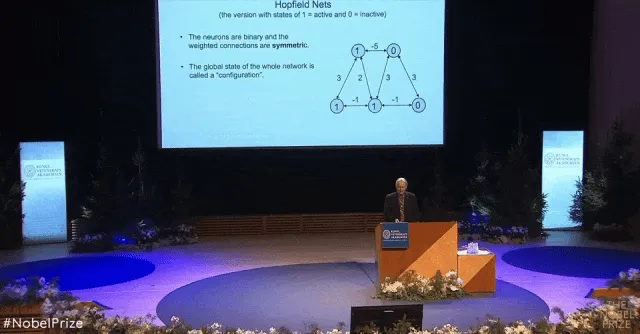
Latest Research Reveals Alignment Mechanisms Between Visual Models and the Human Brain: A study by FAIR and École Normale Supérieure found that AI’s way of seeing the world highly aligns with the human brain, through training self-supervised visual Transformer models (DINOv3). Model size, training data volume, and image type all affect the similarity between the model and the brain, with the largest, most extensively trained DINOv3 models trained on human-relevant images achieving the highest brain similarity scores. The study also found that brain-like representations in AI models follow a specific temporal order, highly consistent with human brain cortical development and functional characteristics. (来源: 量子位)
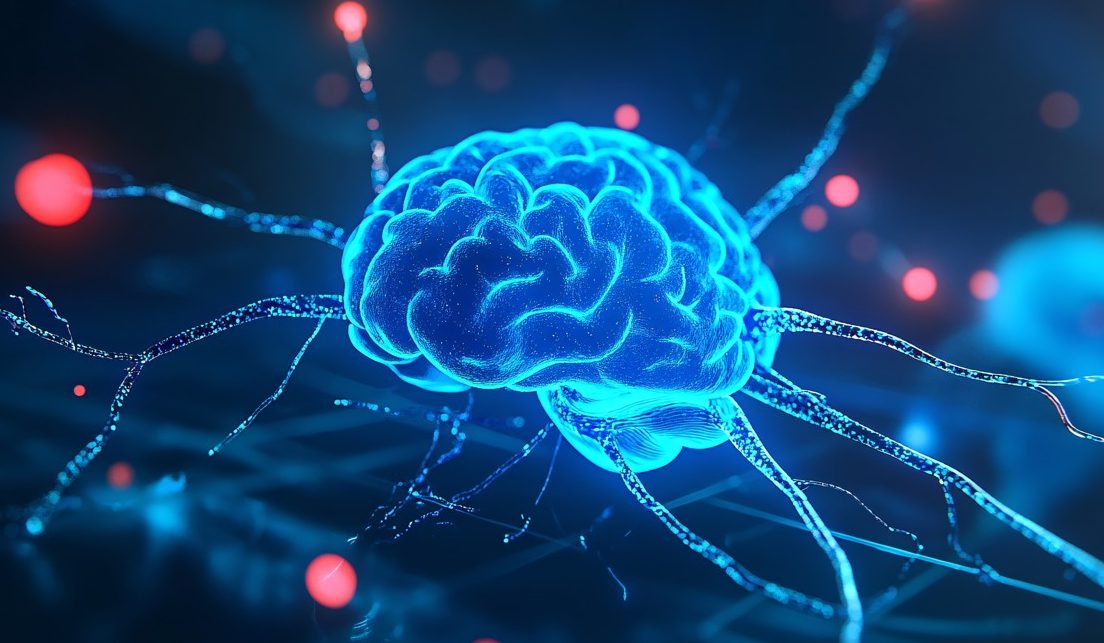
💼 Business
Anthropic Secures $13 Billion in Series F Funding, Valued at $183 Billion: Large model unicorn Anthropic completed a $13 billion Series F funding round, bringing its post-money valuation to $183 billion, making it the world’s third most valuable AI unicorn. The funding round was led by Iconiq, Fidelity, and Lightspeed Venture Partners, with participation from sovereign wealth funds including the Qatar Investment Authority and GIC (Singapore’s sovereign wealth fund). Anthropic’s annualized revenue has exceeded $5 billion, with its AI programming tool Claude Code becoming a major growth engine, seeing over a 10-fold increase in usage within three months and generating over $500 million in annual revenue. (来源: 36氪, 36氪, Reddit r/artificial, Reddit r/ArtificialInteligence)

OpenAI Acquires Statsig, Appoints Its CEO as CTO of Applications: OpenAI announced its acquisition of product analytics company Statsig for $1.1 billion and appointed Statsig founder and CEO Vijaye Raji as OpenAI’s Chief Technology Officer of Applications. This acquisition aims to strengthen OpenAI’s technical and product capabilities at the application layer, accelerating the engineering iteration and commercialization of products like ChatGPT and Codex. Raji will lead product engineering for ChatGPT and Codex, and the Statsig team will integrate into OpenAI, though Statsig will continue to operate independently. (来源: openai, 36氪, 36氪, 36氪)
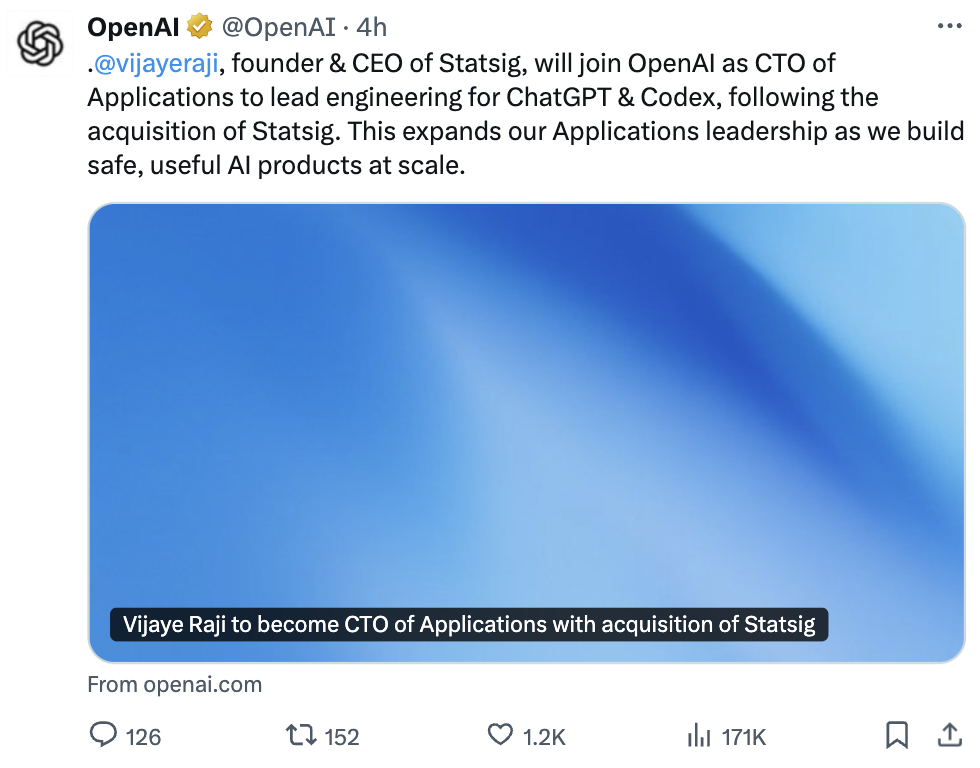
Unitree Robotics Plans to Submit IPO Application in Q4: Unitree Robotics, a leading domestic quadruped and humanoid robot company, announced that it expects to submit its listing application documents to the stock exchange between October and December 2025. The company’s 2024 sales have exceeded 1 billion yuan, with quadruped robots accounting for 65% and humanoid robots for 30%. Unitree Robotics shows strong performance in the robot market, with annual sales of 23,700 units, and is expected to be among the first humanoid robot companies to list on China’s A-share market. (来源: 36氪, 36氪)
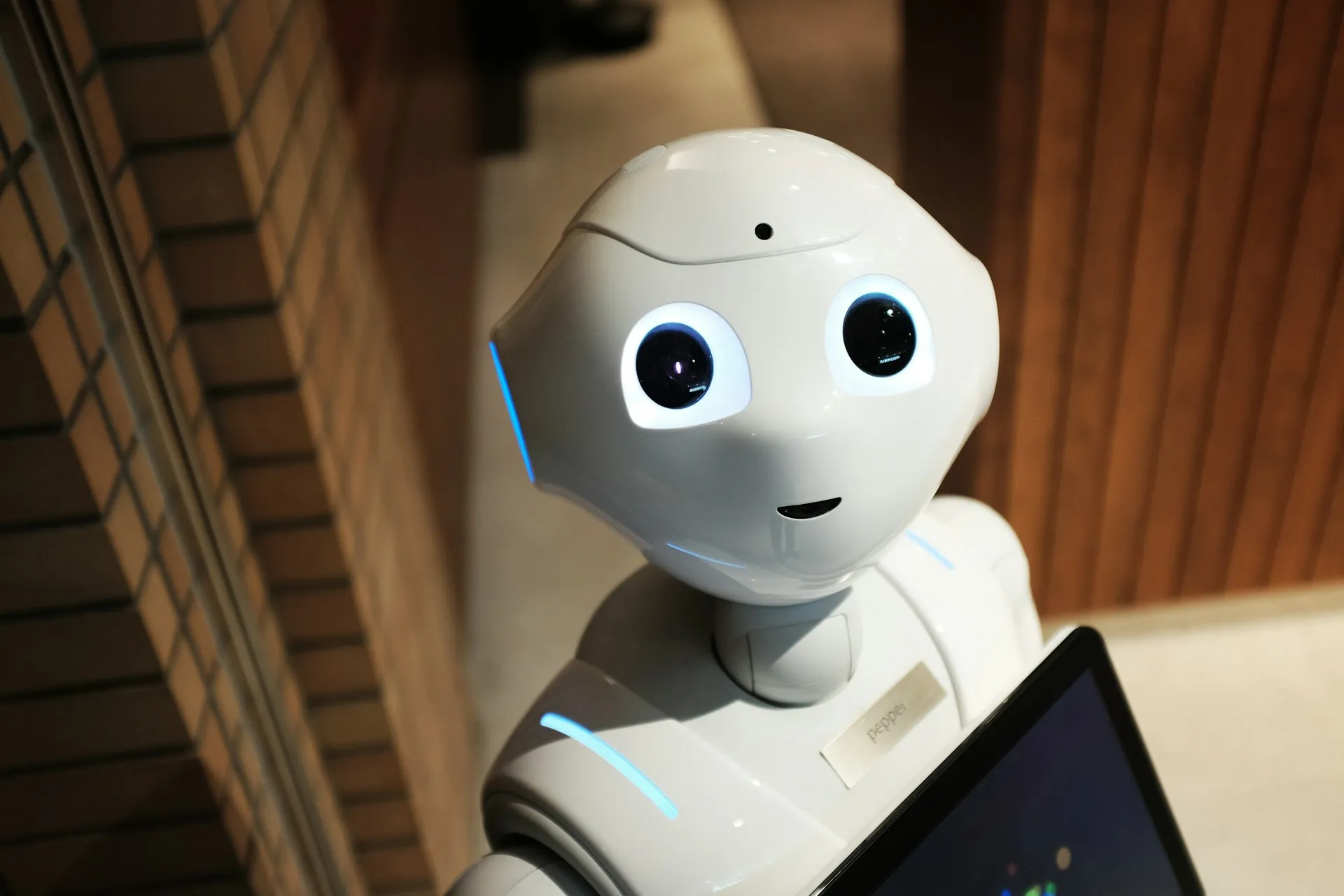
🌟 Community
Social Media Buzzes with AI Ethics and Safety Concerns: Discussions about AI on social media are highly polarized. On one hand, users express strong fears about AI potentially causing job losses, data misuse, and market manipulation, even developing “AI phobia,” believing AI is “stealing art, creating fatigue.” On the other hand, some voices emphasize AI’s potential as a tool, calling for active utilization rather than fear. Discussions also cover concerns about AI products’ privacy protection, content security, and the potential for governments/corporations to use AI for manipulation. (来源: Reddit r/artificial, Reddit r/ArtificialInteligence)
Overly Strict ChatGPT Content Moderation Sparks User Dissatisfaction: ChatGPT users report that the platform’s content moderation mechanism is overly sensitive, frequently triggering suicide hotline prompts or violation warnings, even when discussing fictional stories or non-sensitive topics. This “overcorrection” in moderation has led to a degraded user experience, with users finding ChatGPT “unusable” or “quality degraded,” and some even stating they lost the psychological support AI provided. The community calls on OpenAI to find a balance between content safety and user freedom of expression. (来源: Reddit r/ChatGPT, Reddit r/ChatGPT)

Reddit Community Concerns Over Declining Quality of AI-Generated Content: Multiple AI-related communities on Reddit (e.g., r/LocalLLaMA) express concerns about the declining quality of AI-generated content (“slop posts”). Users complain about an influx of low-quality, self-promotional AI project shares, and even suspect AI bot accounts are involved in commenting and upvoting, leading to excessive community noise and valuable content being drowned out. This reflects a new challenge in maintaining community content quality and authenticity as the barrier to AI content creation lowers. (来源: Reddit r/LocalLLaMA)
AI Training Data Copyright and “Fair Use” Controversy: The Reddit community discusses whether Meta and other companies’ use of copyrighted material to train LLMs constitutes “fair use.” Meta argues that its models do not precisely output training content, thus complying with “fair use” principles. However, users question whether this behavior constitutes theft, especially when companies obtain data through piracy. The discussion highlights the challenges copyright law faces in the AI era and the ongoing dispute between large tech companies and content creators regarding data usage rights. (来源: Reddit r/LocalLLaMA)

AI in Scientific Research Disrupted by Bots and Misinformation: The Conversation reports that the internet and its AI bots are undermining the integrity of scientific research. Researchers struggle to identify the true identities of online participants, facing risks of data corruption and impersonation. AI-generated complex answers make it harder to identify bots, and deepfake virtual interviewees may even emerge in the future. This forces researchers to reconsider face-to-face interactions, despite sacrificing the internet’s advantage in democratizing research participation. (来源: aihub.org)

💡 Other
Democracy-in-Silico: Simulating Institutional Design Under AI Governance: A study introduces “Democracy-in-Silico,” an agent-based simulation where AI agents with complex psychological traits govern society under different institutional frameworks. The research involves LLM agents playing roles with traumatic memories and hidden agendas, participating in deliberation, legislation, and elections under pressure such as budget crises. The study found that institutional designs like constitutional AI charters and mediated deliberation protocols effectively reduce corrupt rent-seeking behavior, improve policy stability, and enhance citizen well-being. (来源: HuggingFace Daily Papers)
Public Funds Favor Robotics Concept Stocks: During the summer A-share market, public funds were active in research, with robotics concept stocks becoming a hot topic. Leading institutions like Boshi Fund and CITIC Securities Investment Fund frequently surveyed technology-driven industries such as industrial machinery and electronic components. Robotics concept stocks like Huaming Equipment and Hengshuai Co., Ltd. attracted multiple renowned fund managers for surveys, indicating the capital market’s continued optimism about the development and industrial adoption of robotics technology. (来源: 36氪)
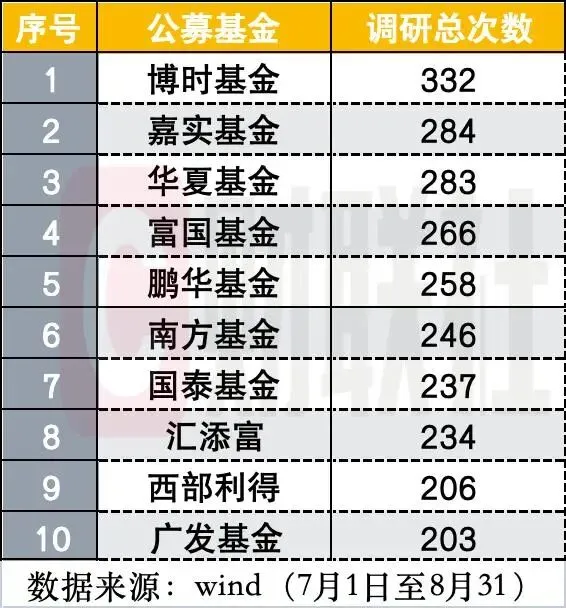
OpenWebUI API Vulnerability: Users May Accidentally Leak Public Knowledge: An API vulnerability has been discovered in OpenWebUI, allowing users with a “User” role to bypass permission settings and accidentally leak private data by creating public knowledge via the API. The API defaults to making created knowledge public, and users can access related files through queries. This vulnerability poses a data leakage risk, and users are advised to temporarily disable the API or restrict access to specific endpoints until a patch is released. (来源: Reddit r/OpenWebUI)
